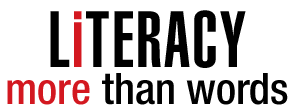Community Literacy
People live, work, volunteer, and raise families in their communities, and each one-of-a-kind community is uniquely positioned to identify its needs and improve its literacy rate.
The presentations listed below offer ideas on coordinating the work of literacy partners to ensure that learners have options and a network of support.
-
 In Conversation with an Experts’ Panel — Leona Gadsby, Anne Cooper, and John Boraas, moderated by Erica Johnson
In Conversation with an Experts’ Panel — Leona Gadsby, Anne Cooper, and John Boraas, moderated by Erica Johnson
Three talk-show-style panel sessions explore the importance and experience of community, in terms of effecting social change, and draw out reactions to the keynote presentations. Panel members reflect on community-based literacy development and discuss next steps.
Webcast Part I
Webcast Part II
Webcast Part III -
 The Mamawkamatowin Story: Everyone Working Together — Sandi Hildebrand and Marlene Scott
The Mamawkamatowin Story: Everyone Working Together — Sandi Hildebrand and Marlene Scott
This presentation looks at the story of how people interested in improving literacy levels came together from Beardy’s and Okemasis First Nation to turn talk into action and respond to the literacy needs of their community. Sandi and Marlene walk participants through the development of a literacy plan for their community, and talk about some results of that plan.
Webcast
Presentation (Hildebrand) (PDF)
Presentation (Scott) (PDF) -
 Building Community Capacity to Address Rural Literacy Challenges — Dr. Robert Crocker, Dr. Robert Greenwood, and Beverly Kirby
Building Community Capacity to Address Rural Literacy Challenges — Dr. Robert Crocker, Dr. Robert Greenwood, and Beverly Kirby
This experts’ panel looks at literacy programming alternatives, both formal and informal, to provide quality and accessible literacy programming and support to individuals in rural communities, recognizing the strengths, interests, and concerns of communities and their members.
Webcast: Dr. Robert Crocker
Webcast: Robert Greenwood
Webcast: Beverly Kirby
Webcast: Q&A
Presentation (Crocker) (PDF)
Presentation (Greenwood) (PDF)
Presentation (Kirby) (PDF) -
 Community Windows — Lucy Hyslop
Community Windows — Lucy Hyslop
Literacy in B.C. is seeing communities speaking up for their needs and working together to find solutions. Community Windows is a series of grass-roots video segments that show a sample of community voices recorded by freelance journalist Lucy Hyslop. The voices are grouped together to reflect the four themes that came through most in her interviews.
Webcast: Community Empowerment
Webcast: Community Goals
Webcast: Community Resources
Webcast: Community Success -
 Dispatches — Lucy Hyslop
Dispatches — Lucy Hyslop
Lucy tells the story of travelling around B.C., meeting with and interviewing more than 350 learners and community literacy professionals from all corners of the province. The story richly documents the many challenges and the successes that have resulted from the Literacy Now Community program developed by 2010 Legacies NOW, in partnership with the B.C. Ministry of Education.
Webcast -
 Literacy-Based Community Development in Rural B.C. — Anne Docherty and Alice Kidd
Literacy-Based Community Development in Rural B.C. — Anne Docherty and Alice Kidd
Community leaders and storytellers speak about their literacy-based community-development experience and its broader impacts and benefits.
Webcast -
 Literacy-Based Community Development in Urban B.C. — Chris Kelly and Paul Whitney
Literacy-Based Community Development in Urban B.C. — Chris Kelly and Paul Whitney
This session provides an overview of the Vancouver Learning City and related initiatives, and discusses some of the challenges and lessons learned to date.
Webcast: Paul Whitney
Webcast: Chris Kelly
Webcast: Q&A
Presentation (PDF) -
 New Canadians, Community, and Literacy — Deb Zehr and Tung Chan
New Canadians, Community, and Literacy — Deb Zehr and Tung Chan
The presenters review compelling data regarding immigrants and English as a foreign language, and discuss issues as they relate to literacy-based community development.
Webcast: Deb Zehr
Webcast: Tung Chan
Presentation (Zehr) (PDF) -
 Community Adult Literacy: Alberta — Janet Lane
Community Adult Literacy: Alberta — Janet Lane
This presentation looks at Alberta literacy statistics and asks: What about the 40 per cent of Albertans who struggle with things the rest of us take for granted? Janet looks at the importance of a full range of community adult-literacy programs, with the overall goal of ensuring that all people have the opportunity to give their unique gifts to the world.
Webcast -
 Legacies Session — Paige MacFarlane
Legacies Session — Paige MacFarlane
In this session, B.C. Assistant Deputy Minister of Education Paige MacFarlane looks beyond the CMEC literacy forum to what comes next. Assistant Deputy Minister MacFarlane reminds us that literacy is about action; we need to go beyond the statistics to put in place creative solutions. The forum legacy materials are one way to extend the conversation beyond the forum, as is B.C.’s post-forum virtual community: www.bcliteracyforum.ca.
Webcast


